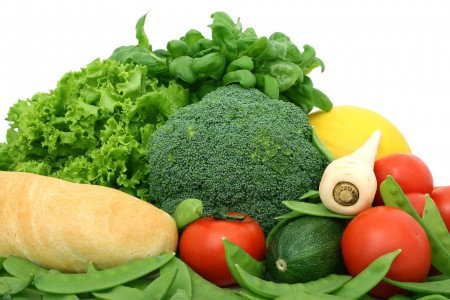
The Food Institute of the University of Guelph also examined the issue of climate change and food.
Cutting food waste will help combat climate change, say three University of Guelph professors this World Food Day.
The United Nations World Food Day will take place Oct. 16 under the theme “Climate Is Changing: Food and Agriculture Must, Too.” The U of G faculty say reducing food waste would be a big first step.
Prof. Ralph Martin, Plant Agriculture, said on average every Canadian household wastes more than 20 per cent of food purchases, costing consumers $31 per week.

Martin said less waste would reduce pressure on farmers and ease demands on farmland, helping to maintain soil health.
“When there is less demand, then there is less need to produce food and thus the opportunity to save water, energy and inputs that are required to grow food,” said Martin.
“There are also more opportunities to use cover crops and crop rotations to improve soil organic carbon when excess production is not required.”
Prof. Bruce McAdams, Hospitality, Food and Tourism, said food waste has become more important for the food service sector.
“One key issue we have researched is plate waste, as many North Americans associate value with portion size. Operators want to change this, but consumers have expectations, so this is difficult,” he said.

Pre-made items in quick service restaurants also pose problems.
“These items have best-before dates and times for quality assurance reasons, so full pots of coffee can get dumped after 15 minutes.”
However, he said, restaurateurs are interested in reducing food waste. “A lot of focus is put on decreasing cost for restaurant operators, so they have a huge motivation.”
Reducing food waste is a huge step toward food system sustainability, said Prof. Kate Parizeau, Geography.
“The high percentage of food wasted represents a lot of climate change-related emissions,” she said.
“Also, when uneaten food winds up in landfills, the rotting process produces further greenhouse gas emissions. Reducing food waste from the farm to the fork and beyond will enable us to mediate the environmental effects across the food value chain.”

Parizeau has worked with the City of Guelph to study food waste in residential garbage.
“Food waste has many causes and so will require many and varied responses if we wish to address it properly,” Parizeau said.
“Solutions could include enhancing markets for ‘ugly produce’ and improving composting in restaurants. Much of the food wasted occurs in homes, so we need to be more thoughtful of the food we buy, and learn how to best store and prepare it.”
Canadians enjoy relatively low food prices, but that can change, she added.
“Food will become more expensive in the future, so we need to create an effective low-waste food system now and address the challenges of agricultural constraints in the future.”